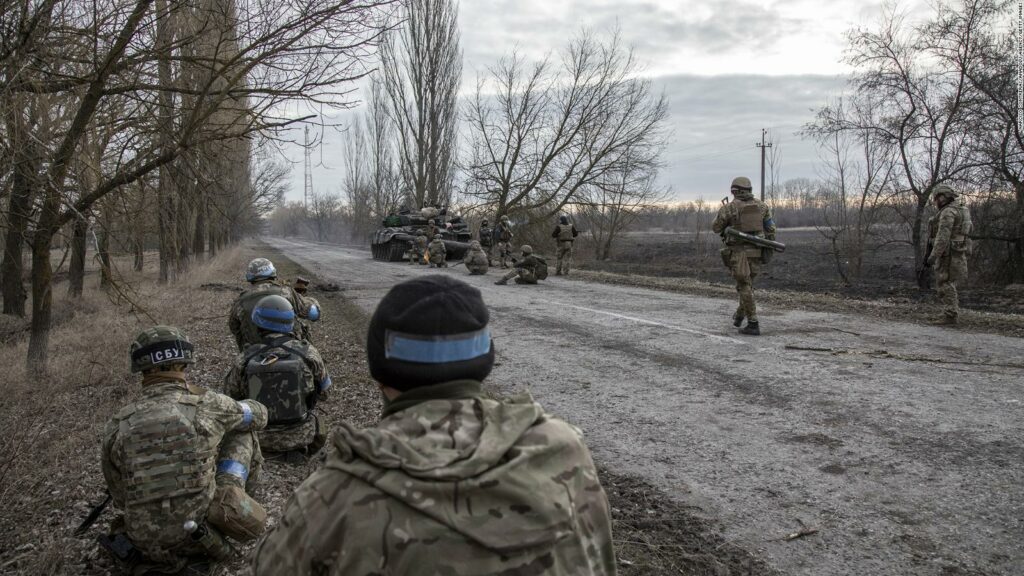It is gut-check time for the European Union. As the brutal Russian invasion grinds on and repercussions of one of the most preventable long-term geopolitical security blunders in European history becomes more evedent by the day the question is: do EU governments have the political stability and fortitude to go the distance against Vladimir Putin? Or, more to the point: do they have what it takes to prevent Russia from "winning this war'' as European Commission President Ursula Van der Leyen insisted last at the World Economic Forum in Davos.
Inextricably linked to that question is another: do at least a majority of approximately 440 million EU citizens, most of whom are longing for post pandemic freedom and preparing for summer holidays, understand what is at stake in the fight against Putin? And are they willing to make the sacrifices, including food and fuel rationing, that will likely be necessary later this year in order to stop the Putin war machine and drive it back to borders that existed before 2014? Unfortunately positive answers to those questions are far from certain.
It is clear there is a lingering resolve divide in the EU. Most Eastern and Central European government as well as those in the Baltics know they could be next if Putin wins. So they are all in for the fight. Hungary is the obvious exception. But some important western European countries are still in denial about what it will take in both military and economic terms to defeat Putin. Others are on such shaky political ground they dare not explain the rock and a hard place dilemma they face as the battle against Putin continues.
The divisions over how to deal with Russian demands to pay for its gas exports in rubles is a prime example of the resolve gap. Some countries and companies led by Italy and its oil and gas giant Eni have heeled. Others have refused. Just as Putin has done several times in the past decade and a half, he cut gas supplies to those that do not meet his demands.
Where is the European Commission, the defender of the single market, on this issue? Sitting on the fence. It seemingly can not make up its mind if setting up an account with Russia's state-owned Gazprom bank that in effect pays Russia in rubles violates EU sanctions.
Fortunately winter is another six months away. But with European natural gas prices approximately five times higher now than they were a little more than year and a half ago storage tanks are not being filled as they normally would in summer when the price is traditionally low. And you can be assured Putin will impose more gas supply cuts as soon as the temperature starts to drop in autumn – if not before.
A month ago the Ukrainian war outlook was not so dire – at least on the battle field. But the ability of the Ukrainian army, bolstered by U.S. weaponry, to drive Russia away from Kyiv led to a false sense of optimism in some EU capitals and among the public. There was hope the Russians were on the back foot.
But this miscalculation is just the latest on a long list. It includes the failure to pivot away from Russian gas and oil after the 2009 gas cut off even though it left millions in Central and Eastern Europe without heat in the midst of a frigid winter; the 2014 Crimea invasion; the 2014 downing of Malaysian commercial airline flight; assissinating and poisoning of Putin enemies on European soil; and continued violations of the Minsk accords after orchestrating the Donbass invasion by Russian-backed separatists. That does not even include the hybrid Russian warfare, including interfering in European elections.
I would argue that some of the roots to all these miscalculations is the national security umbrella provided by the United States via NATO. Having covered EU politics for 30 years, including 25 in Brussels, I know the post WWII relative free ride has been taken for granted by western EU governments and the general public for more than a half century. To even raise the subject was almost taboo. And, more important, it has dulled western European senses when it comes to dealing with Russia.
The Kyiv-inspired false sense of security, enhanced by the sinking in the Black Sea of the Russian naval flagship Moskva, has been aided and abetted by western media and all its military and foreign policy experts'' touting the initial Ukrainian success. One talking head after another has insisted it proved "Putin has no plan B.''
But as botched as the Russian Kyiv invasion was it was foolish to think Putin did not have a sinister back up plan. After all this is the man that masterminded a massive refugee wave into Europe by bombing Syria to smithereens. With that in mind Putin's threat to create another refugee wave by starving millions in the Middle East and Africa – among other places - should be no surprise.
But unfortunately it has been. The stranglehold on grain held up in Ukraine ports was a real strategic threat long before the start of the latest Russian invasion. So when Scholz and Macron, facing skyrocketing energy and food prices among other woes, went cap in hand essentially begging Putin for a ceasefire in a May 28 telephone call it was no surprise the Russian leader left them in the lurch. Rule No. 1 when dealing with Putin: never negotiate from a position of weakness. Again, another miscalculation.
The desperation the EU finds itself is compounded by disinformation, a lot of which is financed as part of Russia's hybrid war plans, and perpetuated by some EU politicians, academics and others on TV talks shows and social media. Blaming NATO expansion was the favourite go-to canard at the start of the war. It has now evolved. One of the new popular narratives is all about Biden bolstering Ukraine in order to sell Europe more U.S. oil and gas as well as military weapons.
With that in mind it is no wonder French, German and Italian leaders have been maneuvering behind the scenes to convince Ukraine to negotiate a ceasefire with Russia. And lo and behold who has come out of the woodwork to boost their efforts: none other than Henry Kissinger who called for Ukraine to cede territory at the World Economic Forum in Davos.
For the uninitiated Kissinger was both U.S. national security and secretary of state Cold War hardliner for former U.S. President Richard Nixon in the late 1960s and early 1970s. Among other things, he played key roles in the U.S. secret, illegal bombing of Cambodia during the Vietnam War. He also played a key role in military coups in Chile and Argentina - all in the name of defending the democratic principles of the "free world.''
Now Cold War realpolitik warrior Kissinger is calling for Ukraine - and by extension Europe and the United States - to wave the white flag in the face of Russian aggression and cede territory. Lets hope that Scholz, Macron and Draghi do not adopt that idea. If they do, it will just add to the long list of miscalculations that have led the bloc into the dark tunnel in find itself.


